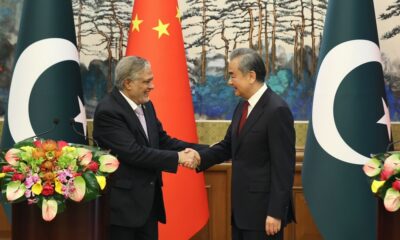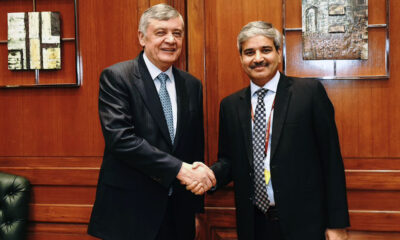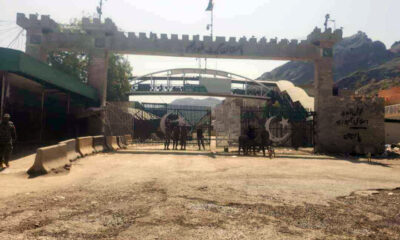Latest News
US shows greater willingness to engage with the IEA
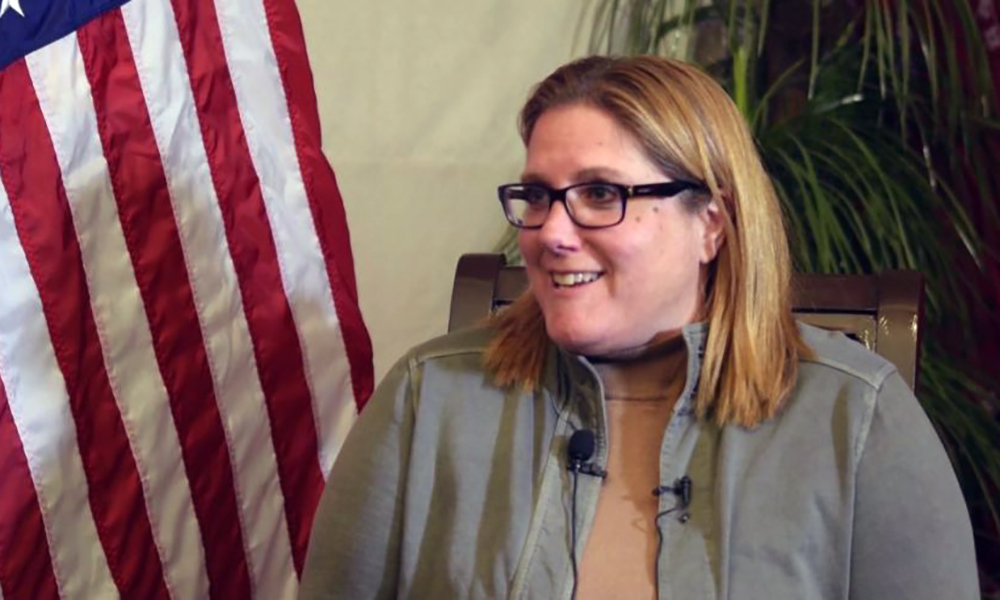
Washington is willing to move towards greater engagement with the Islamic Emirate of Afghanistan (IEA) as it seeks to tread a fine line between its human rights concerns and helping the Afghan people, interviews with top US officials and senior aid figures reveal.
Speaking to The New Humanitarian on the sidelines of a donor meeting in Istanbul last month, Karen Decker, chargé d’affaires of the US mission to Afghanistan, said Washington has “learned the hard way that isolation is ruinous. It’s ruinous for the Afghan people. It’s ruinous for the region”.
In the past year, the UN, several international and local NGOs, and Washington have all signaled that avoiding the Islamic Emirate won’t solve Afghanistan’s economic and humanitarian issues, The New Humanitarian reported.
This comes despite the IEA still refusing to allow girls and women to study beyond the sixth grade.
Decker told The New Humanitarian that Washington is now in a position where it must “very carefully navigate the non-recognition policy”, which requires a delicate balance of keeping in mind that the IEA took power by force rather than a democratic vote while still finding ways to reach the millions of Afghans who require emergency assistance.
One NGO source, who asked to remain anonymous, was quoted as saying by The New Humanitarian that “engagement [with the IEA] is necessary, but we have to find a way to balance engagement while not compromising on our principles.”
Decker agreed, saying Washington would continue to engage with the IEA on “pragmatic issues”, with humanitarian assistance and human rights being her primary areas of concern.
Because its non-recognition policy precludes US officials from working in the country, Washington has partnered with local and international groups on the ground to deliver assistance directly to the Afghan people.
But even with that cooperation, it’s not always so easy, as these groups must also tread carefully amid increasing IEA restrictions and regulations, The New Humanitarian reported.
Even though there is still a long way to go, particularly in terms of addressing US human rights concerns, Decker told The New Humanitarian she feels Washington’s efforts have led to some positive results.
“Eighteen months ago, we were worried about famine, and there is no famine in Afghanistan,” Decker said, crediting this largely to the work of local and international aid organizations.
However, she pointed out that Afghans still need more food assistance than in the past: “So, in some respects, you trade one problem for another.”
Decker raised another issue that adds to the difficulty of engaging further: the Islamic Emirate’s unwillingness to acknowledge any problems in the country: “They like to present Afghanistan as a success story… [and] they don’t want anyone thinking there’s anything wrong.”
She said if the Islamic Emirate were more straightforward to deal with, then humanitarian actors would save a lot of time and money and be able to reach those in need more quickly.
“We use a lot of time and effort making it work, because of the Taliban (IEA). They are fundamentally the challenge to making this work. We are able to navigate [it], but it would be much more efficient if the Taliban were much more [open].”
Decker did, however, give the Taliban some credit, saying they had shown some flexibility, especially in emergency situations.
She pointed to the Islamic Emirate’s responses to a series of earthquakes that rocked the western province of Herat, and the recent mass expulsions of hundreds of thousands of Afghans from neighboring Pakistan, as examples of when the IEA saw it necessary to amend or loosen some of their restrictions, The New Humanitarian reported.
“Women were suddenly allowed to work because they had to reach women beneficiaries,” she said.
While engagement efforts have sparked widespread criticism, all the sources The New Humanitarian spoke to said they saw little benefit in pretending the Islamic Emirate does not exist.
With an “overwhelming need in the country”, simply ignoring the IEA will do nothing to improve the lives of the millions of Afghans who remain in need, said Decker.
“It’s not in anyone’s interest for us to isolate the country,” she added. “And I say this over and over: I feel strongly that if the United States does not advocate for the Afghan people, nobody will. So, I don’t need any more motivation than that.”
The New Humanitarian reached out to the Islamic Emirate’s Ministry of Foreign Affairs for comment on several matters related to the issue of engagement, but it failed to respond.
Decker and other sources did however, express some hope based on private meetings and the public statements of several high-ranking Islamic Emirate officials, who have acknowledged that all girls and women should be allowed to return to school and that the government must expand beyond just the IEA.
“We know that there [are] senior Taliban leaders who have their daughters in school outside of the country, and some of them have even been open in their own statements about the importance of education,” said Decker.
However, for progress to be made towards US recognition, she said the Islamic Emirate must officially change some of its policies, pointing to increased work opportunities for women and real inclusion of non-IEA members in the government as concrete examples of possible game-changers.
Latest News
China and Pakistan call for inclusive ‘political framework’ and ‘moderate policies’ in Afghanistan

According to the statement, Wang and Dar called for concerted efforts from the international community to help Afghanistan address challenges in areas such as the humanitarian situation and economic development.
“The two sides agreed to strengthen communication and coordination on the Afghanistan issue,” the statement read.
“They called for concerted efforts of the international community to help Afghanistan properly address challenges in such areas as the humanitarian situation and economic development, and encourage Afghanistan to build an inclusive political framework, adopt moderate policies, pursue good-neighborliness, and firmly combat terrorism, including not allowing its territory to be used for terrorist acts.
“Both sides agreed to play a positive and constructive role in helping Afghanistan achieve stable development and integrate into the international community,” the statement read.
Latest News
Japan pledges emergency aid to Afghanistan’s flood victims

The Japanese Embassy in Afghanistan announced Thursday it will provide emergency relief to flood-hit people in northern Afghanistan.
According to a statement issued by the embassy, relief will be provided through the Japan International Cooperation Agency (JICA) in cooperation with the International Federation of Red Cross and Red Crescent Societies (IFRC) and Afghan Red Crescent Society (ARCS).
This relief includes tents, blankets and other essential items.
According to the statement, “Japan has decided to provide emergency assistance to Afghanistan to support people affected by the flood. We will always stand by the people of Afghanistan.”
The UN Office for the Coordination of Humanitarian Affairs (OCHA) has meanwhile reported that 8,975 homes were destroyed or damaged by floods in Baghlan, Badakhshan, and Takhar provinces following heavy rains.
Russia also pledged help if needed, while the Organization of Islamic Cooperation (OIC) appealed to Islamic countries and aid organizations to step in to help the flood victims.
Latest News
Russia’s special envoy for Afghanistan visits India
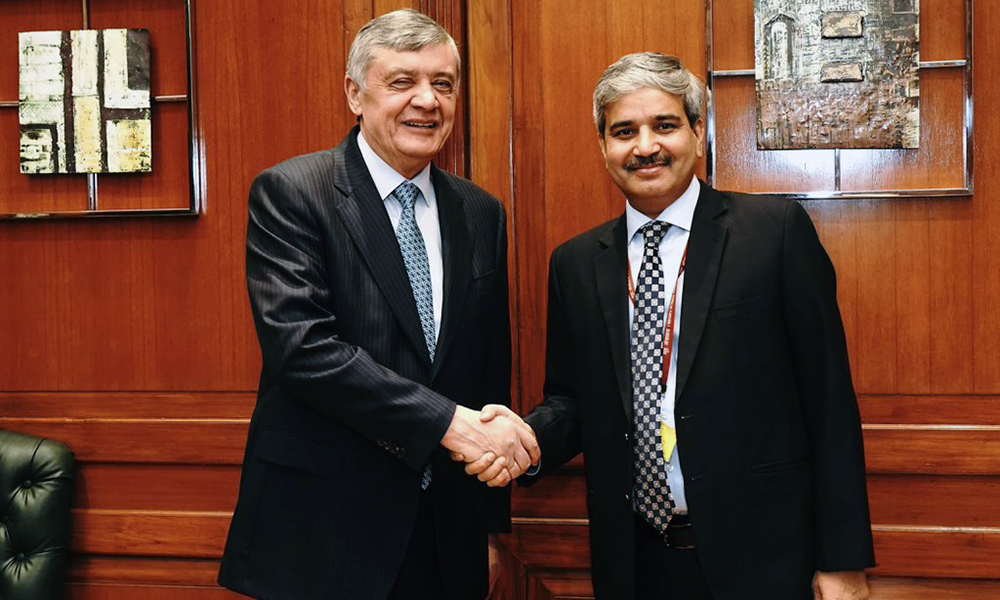
Russia’s special envoy for Afghanistan Zamir Kabulov held talks with India’s external affairs minister JP Singh to discuss the situation in the country.
Kabulov met with Singh during a visit to India.
In a post on X, India’s external affairs ministry spokesperson Randhir Jaiswal said: “India and Russia held bilateral consultations on Afghanistan today in New Delhi.
“Amb. Zamir Kabulov, Special Presidential Envoy for Afghanistan, and JP Singh, Joint Secretary (PAI) discussed the current situation in Afghanistan and emphasized on the need to provide development assistance for the welfare of the Afghan people,” he said.
An official at the Russian embassy said Kabulov held talks with Singh under the framework of India-Russia foreign ministerial consultations on Afghanistan.
New Delhi has been pitching for providing unimpeded humanitarian aid to Afghanistan to address the humanitarian crisis in the country.
In June 2022, India re-established its diplomatic presence in Kabul by deploying a technical team in its embassy in the Afghan capital.
The Islamic Emirate says that due to the diplomatic efforts of the IEA, a good spirit of cooperation has been formed in the region towards Afghanistan, and the countries have understood that stable security and stability in Afghanistan is in the interest of all countries.
-
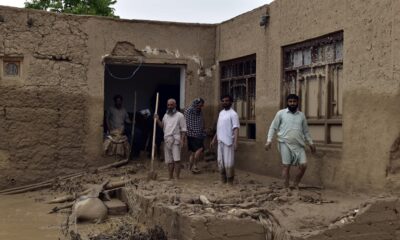
 Latest News5 days ago
Latest News5 days agoBaghlan floods leave 315 dead and over 15,00 injured so far
-

 Business4 days ago
Business4 days agoAfghanistan can become important industrial center in region: Hanafi
-
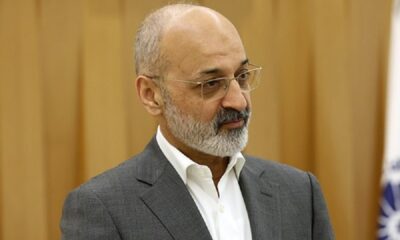
 Latest News5 days ago
Latest News5 days agoInvesting in Afghanistan mines can be profitable for Iranian industry: Qiafeh
-
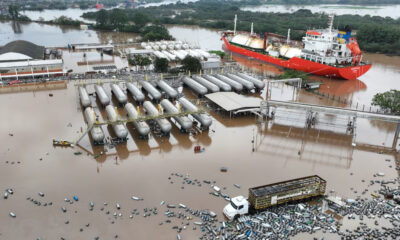
 World4 days ago
World4 days agoBrazil floods kill 143, government announces emergency spending
-
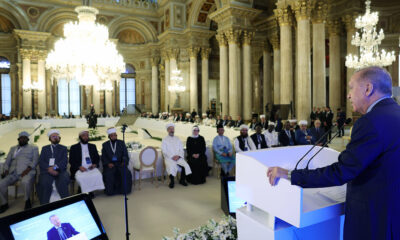
 Latest News4 days ago
Latest News4 days agoMinister of Hajj meets with Turkish President Erdoğan
-
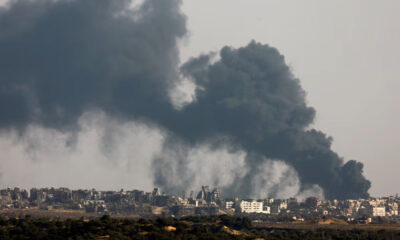
 Regional4 days ago
Regional4 days agoIsraeli forces step up attacks on Jabalia camp and Rafah in Gaza
-
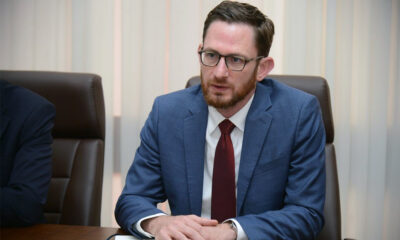
 Latest News4 days ago
Latest News4 days agoUS partners in Afghanistan mobilizing emergency aid for flood victims: Thomas West
-

 Sport4 days ago
Sport4 days agoTeam unity, newfound aggression key to RCB’s dramatic IPL turnaround


